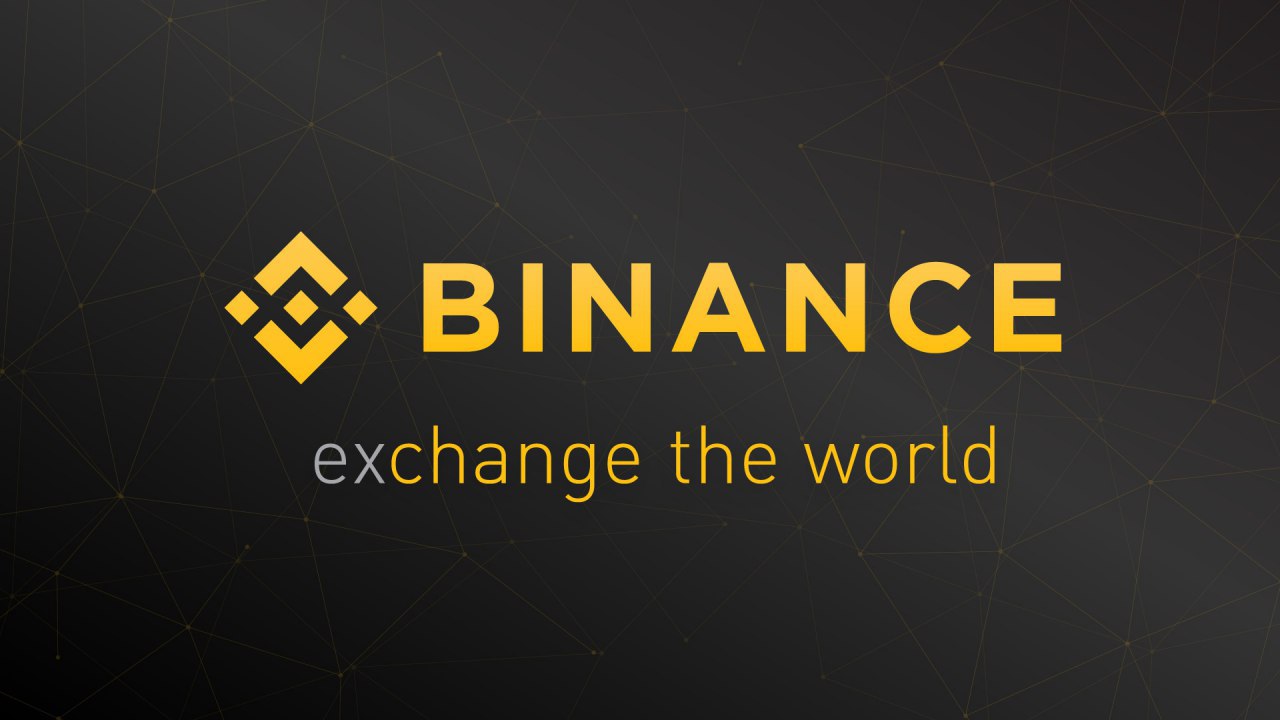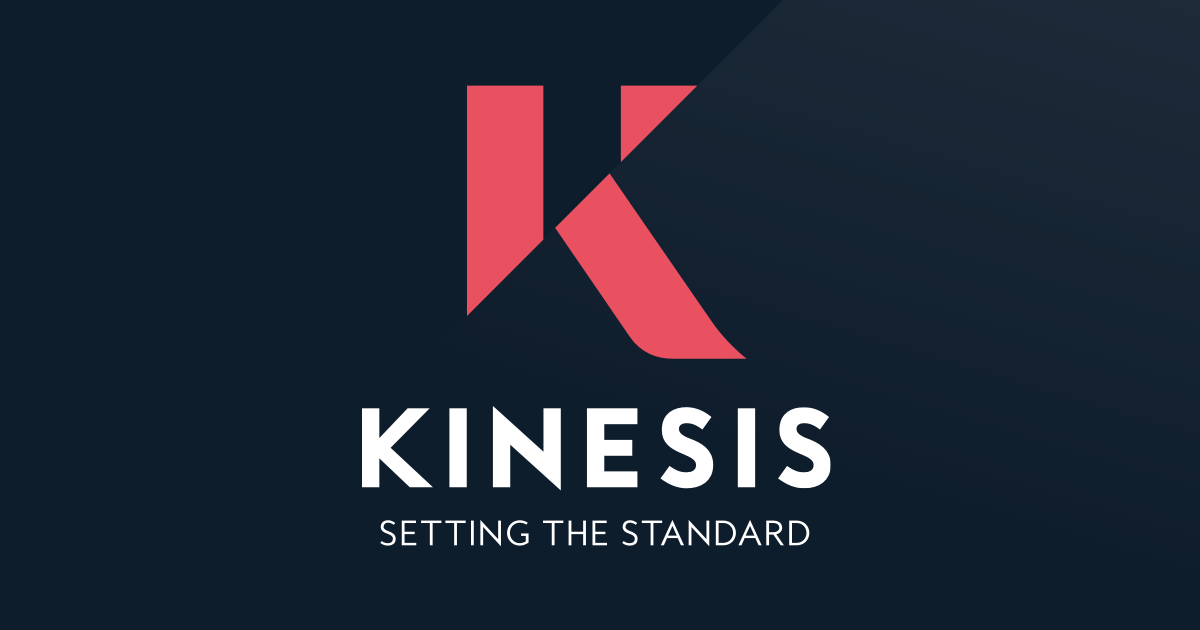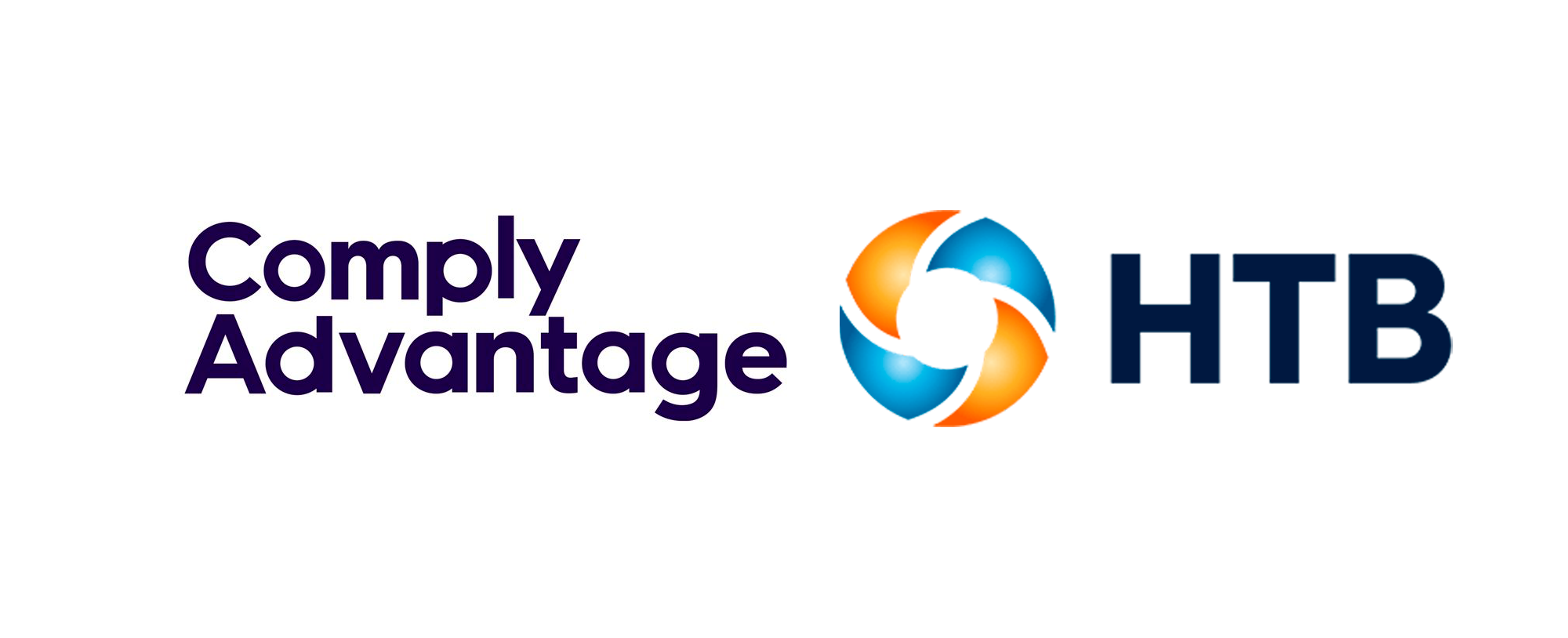Published
- 04:00 am

Bank corporation partners with Jack Henry for open, efficient technology ecosystem
Wauchula, Fla.-based Crews Banking Corporation is the holding company for four individually chartered banks: Charlotte State Bank & Trust, Crews Bank & Trust, Englewood Bank & Trust, and Wauchula State Bank. The holding company was on its previous core system for more than 20 years and needed a more robust, digitally optimized core to support its growth and evolution. By leveraging Jack Henry’s SilverLake System® core, the banks are gaining a strategic, long-term technology ecosystem that seamlessly integrates and aligns critical lines of business. And, by running the core through Jack Henry’s private cloud environment, Crews Banking Corporation expects to reduce IT burden and better meet regulatory demands.
Brad Wilson, Chief Financial Officer of Crews Banking Corporation, explained, “Technology is changing at a rapid pace, and we needed to upgrade our systems to empower us to compete and quickly introduce differentiated customer experiences. Jack Henry has the deep integrations, open philosophy and strong culture we were looking for. Plus, by outsourcing with Jack Henry, we’ll be able to solve for the talent shortages in our area and benefit from the wide, valuable expertise of their team.”
Crews Banking Corporation will leverage Jack Henry’s digital loan platform to automate the commercial lending process and deliver an enhanced borrower experience. The all-digital loan origination, decisioning, and portfolio management workflows will allow the banks to improve transparency, reduce paper throughout the loan lifecycle and shorten loan turnaround times. The banks are further enhancing digital experiences with the Banno Digital Platform™, enabling meaningful personal service at the moment of need within digital channels with fully open, API connectivity. Both of these digital platforms are tightly integrated to the SilverLake System core creating a unique value of 1+1+1=5.
Wilson continued, “Customer experience is the driver for everything we do, and that means ensuring both lending and deposit banking experiences are quick, easy and digitally optimized. Jack Henry’s digital lending technology offers seamless integrations from application to closing and beyond, creating efficiencies and establishing a strong competitive posture in our market. The Banno Digital Platform brings equally valuable benefits, delivering a human-centric and smooth experience for our customers that even exceeds their daily interactions with the likes of BigTech companies and major retailers.”
Ted Bilke, vice president and chief technology officer of Jack Henry & Associates, stated, “Technology solutions that have been pieced together over years or even decades typically create inefficiencies and are detrimental to the overall customer experience. Crews Banking Corporation is making a strategic investment in a dynamic, comprehensive and customizable platform that supports agility and personal experiences. With Jack Henry, the banks are boosting their competitive positions and solidifying the technology necessary for continued growth and success.”
Related News
- 05:00 am

Binance, the world’s leading blockchain ecosystem and cryptocurrency infrastructure provider, today announced the appointment of Tigran Gambaryan and Matthew Price, both former Special Agents of the Internal Revenue Service—Criminal Investigation (IRS-CI) Cyber Crimes Unit in Washington, D.C.
Tigran joins Binance as VP of Global Intelligence and Investigations after a decade at the IRS-CI. As a Special Agent, Tigran investigated cases involving national security, terrorism financing, identity theft, distribution of child pornography, tax evasion, and bank secrecy act violations during his award-winning career. Tigran led several multi-billion dollar cyber investigations, including the Silk Road corruption investigations, BTC-e bitcoin exchange, and the Mt. Gox hack.
Matthew joins Binance as Senior Director of Investigations with 15 years of experience in law enforcement and intelligence, having led cyber, money laundering, and financial crimes investigations and efforts to mitigate counterterrorism and counterintelligence threats. Formerly serving as a Special Agent with IRS-CI, Matthew led international cyber investigations targeting bad actors who sought to exploit cryptocurrency for illicit purposes. Matthew was the lead investigator of Helix---the first investigation and successful prosecution of an illicit bitcoin tumbling service operating on the darknet.
This announcement follows the recent appointments of former Europol specialist covering Dark Web investigations, Nils Andersen-Röed and former crime detective of Mariposa County in California, Aron Akbiyikian, who also led investigations at Chainalysis and TRM Labs before joining Binance.
“The Binance investigations team now includes the top investigators in the world who have worked on some of the most significant cyber investigations in history with unmatched track records in this space,” said Binance CEO ‘CZ’ (Changpeng Zhao). “This level of experience will make Binance a leader in compliance, enhancing trust in Binance and the cryptocurrency ecosystem as a whole.”
Led by Binance’s Chief Security Officer Jimmy Su and Tigran, the audit and investigations team will focus on internal and external investigations to prevent threats and financial losses while continuing to work closely with law enforcement agencies and regulators around the world.
“Compliance is the first line of defense,” said Tigran. “We will work closely with our colleagues in compliance to identify criminals and refer them for prosecution. The constantly evolving crypto industry requires strong cooperation between the industry, law enforcement and regulators. Our goal is to increase trust in cryptocurrency by establishing Binance as the leading contributor in the fight against human trafficking, ransomware and terrorism financing.”
“I want to educate the worldwide law enforcement community on how Binance is a partner in the fight against the illicit use of cryptocurrency, keeping the ecosystem more secure and moving it forward sustainably,” added Tigran.
Related News
- 09:00 am

By distributing profits from transaction fees, Kinesis provides a genuine low-risk alternative to investors at a time of uncertainty and heightened risk among traditional investments
Today, Kinesis Money, the monetary system based on 1:1 allocated gold and silver, launches its Holder’s Yield, whereby a portion of the yield pool, currently valued at $17.5 million, will be distributed every month to people who hold gold and silver with Kinesis.
Until now, revenue amassed from the trading or investment in gold was speculative and subject to market fluctuations. Kinesis offers a competitive alternative, with a yield-sharing model that allows participants to increase their holdings of gold and silver, by paying a yield of 15% of overall transaction costs back to them each month.
This unique yield system makes Kinesis the only logical place to own gold, as Kinesis stores its metals in world-leading non-bank vaults and covers all storage and insurance costs on behalf of Kinesis users. Gold investors who switch to Kinesis can earn a yield on all gold holdings, as opposed to paying monthly fees like storage and insurance.
The Holder’s Yield combines the stable, enduring value of physical gold with a revolutionary model wherein users can earn a risk-free yield based on the mutual sharing of transaction fees as well as get access to its native trading exchange for a complete metals portfolio management solution.
Importantly, as inflation begins to soar globally, The Holder’s Yield, paid out monthly in gold and silver, offers a virtually inflation-proof model for the creation of a fortified digital asset portfolio, designed for inherent growth and persistent value – an unmatched way of safeguarding wealth in today’s unpredictable economic climate.
Marking a pivotal turning-point for the precious metals industry, gold has never been more accessible than at this very moment; Kinesis has taken gold, one of the most stable stores of value, and transformed the banking infrastructure surrounding the once hoarded, impracticable asset, so that it can be transacted like any other currency intended for mainstream uptake.
Cementing what is an industry first, the Holder’s Yield is just the second of five yields that Kinesis will be bringing online over the course of 2021/2022, making Kinesis gold and silver one of the most exciting investments in the precious metals space in the last decade.
Thomas Coughlin, CEO of Kinesis, says:
“We’re calling on gold investors to make the switch to Kinesis. The Holder’s Yield is not just an industry first, it’s an economic first that renders traditional methods of storing gold obsolete. The yield that we distribute is based purely on transaction fees, meaning it can only generate a positive return – and with our growth, this will only keep growing. By turning the economic model on its head, and distributing some of our profits, we are creating a fairer and more ethical environment for our users to promote and encourage the use of digital gold.”
Andrew Maguire, Director of Kinesis, says:
“What we’re witnessing here is truly revolutionary for the precious metals industry. It’s unheard of; a yield system based on usage and transaction fee sharing is the solution to risky trading strategies and debt-based loan systems where people’s investments are at risk. And guess what? It’s just the beginning.”
Related News
- 04:00 am

South Florida fintech startup sees tremendous growth, gets selected as one of only 20 growth-stage Venture Atlanta 2021 presenting companies
Xendoo, a Greater Miami Region-based fintech startup delivering intelligent automation in the online and bookkeeping space for small business owners around the world, announced today that Kristen Reineke and Andrew Bennett have joined as Director of Partnerships and Director of Operations, respectively.
The new hires on Xendoo’s leadership team come as the company begins the process to raise series A funding. Additionally, Xendoo was recently named as one of only 20 growth-stage companies to present at Venture Atlanta 2021, the largest venture capital conference in the Southeast U.S. region, to be held October 20-21.
“We are confident that the experience and talent Kristen and Andrew bring to Xendoo will allow us to scale our business even further and expertly help facilitate our growth,” says Xendoo CEO and Founder Lillian Roberts. “Our company has continued investing in talent, technology, and growth since we completed a $3.5 million seed funding round in 2019, as shown by our more than 700 percent revenue growth over a two-year period, our recent corporate office move, and newest leadership hires.”
In third-quarter 2021, Xendoo moved its headquarters to a 15,171-square-foot office space, which expanded the fast-growing company’s footprint by more than 50 percent in Fort Lauderdale's Cypress Creek area.
In her new role as Director of Partnerships at Xendoo, Reineke is responsible for building and growing strategic franchisee partnerships for the benefit of small business owners. She brings more than 20 years of online marketing, business development, partnership, and leadership experience across e-commerce industries, having served at companies such as Equifax, DentalPlans.com, and TRANZACT. Reineke holds a Bachelor of Science in Communications from Florida State University.
As Director of Operations, Bennett will align Xendoo’s technology platform with the needs of internal and external customers to ensure the delivery of timely and accurate monthly financials for small business owners. He has more than 20 years of experience in contributing to the growth of several notable South Florida startups and has worked as a finance/accounting director or consultant with healthcare-related companies Neocis and Carie Health, beverage artisan brand Samson & Surrey USA, and luxury brand ownership firm Luxury Brand Partners. Bennett earned a Master of Business Administration and a Master of Accounting from Florida International University.
Related News
- 02:00 am

Mandar Agashe, Founder, Vice-Chairman and MD, Sarvatra Technologies
“The RBI’s, decision is a huge leap forward in safeguarding customers' interests whilst enhancing the security of payments. With the new regulations, customers will now be required to re-register each of their payment instruments then may it be a debit card, credit card or UPI for a service under the recurring mandate. Post-re-registration, the first transaction will have to be executed via additional factor authentication (AFA) by approving the auto-debit request beforehand. While consecutive transactions, for value upto Rs. 5000 can be executed seamlessly without AFA, transactions of value above Rs. 5000, will require chipping in the OTP every time. While at the onset, this may impact customer convenience to some extent, it will elevate payment security to new levels.
Most importantly this will give the control back in the hands of the customer whilst driving simplicity and transparency as he can now determine and set the amount, velocity etc. of recurring mandates besides even annulling a service whenever required through web-based solutions offered by the banks. The new regulations will bring in uniformity across services while building a ubiquitous platform within the payment eco-system across recurring mandates.”
Anand Kumar Bajaj, Founder, MD & CEO, PayNearby
“Earlier, consumers used to complete their transactions at multiple consumption points for e-commerce or food ordering services. But now with the new regulations being effective from 1st October, payment transactions pertaining to recurring payments using cards, will have to be routed through the issuer Bank. Consumers who have completed the registration process advised by RBI will not face any issues on recurring mandates. While this may seem a little inconvenient from the consumer perspective, it is a welcome move by the Regulator and is in the interest of the consumers.
India is the only country to offer PIN on cards at the POS terminal and OTP for an online transaction but with rising digital payments vulnerability to cyberattacks and digital frauds has also been rising incrementally. Therefore, even as we work towards promoting digital payments, it is also important that we strengthen the infrastructure to make it secure. Therefore, now is the best time to infuse regulatory control as it will safeguard customer data and avoid digital frauds, especially in the case of gullible customers who often fall prey to data breaches. Users need to review all their recurring payments and register them with their banks by offering standing instructions to their respective banks. Consumers also need to be aware that the new guidelines will not impact any recurring transactions under UPI, AutoPay and e-NACH."
Let us know in case if you need additional inputs would be happy to facilitate an interaction with the above spokespersons.
Related News
- 01:00 am

Round led by leading fintech investor Quona Capital
Verto, a global B2B payments platform that provides a fast, simple, and reliable way for small and medium-sized enterprises (SMEs) to make payments to their suppliers in over 200 countries across 39 currencies, has raised $10 million in a Series A round of funding led by leading fintech investor Quona Capital, alongside Treasury, Middle East Venture Partners (MEVP), TMT Investments, Unicorn Growth Capital, Zrosk Investment Management and P1 Ventures. Previous investors include Y Combinator, Accelerated Digital Ventures, and Ace & Company.
Verto will use the investment to continue building its platform to enable businesses to move money across borders seamlessly and instantly, solving important pain points in the B2B global payments industry, which is expected to grow to nearly USD 200 trillion by 2028, over six times the size of the retail payments market. The company also plans to accelerate its geographical expansion into emerging markets such as Africa, a region where SMEs cross-border payment needs are currently significantly under addressed.
Verto was launched in 2018 by Nigerian co-founders Ola Oyetayo and Anthony Oduwole. In their previous experience at top-tier UK banks, the two saw firsthand that while trade and supply chains are increasingly global, international payments remain a complicated and expensive proposition, especially in emerging markets where local currencies are less familiar and less liquid than those of more developed economies.
And while the proliferation of peer-to-peer and remittance companies has started to address this pain point for consumers in emerging markets, the B2B market—which serves the SME sector and accounts for nearly 30% of global imports and 45% of total employment in emerging markets—has remained largely untouched.
Verto's fast and frictionless global payments platform uses its "marketplace" solution to match businesses efficiently, especially where one of the currency pairs is an illiquid currency.
“Using Verto’s three main products (Payments, Exchange & Multi-Currency account), business owners can now send cross-border B2B payments at FX rates up to 9 times cheaper than they could through traditional banks, and with Verto wallets businesses can hold money with us in 39 currencies and make instant cross-border payments to other companies on the Verto network in real-time,” said Ola Oyetayo, co-founder and CEO of Verto. “While traditional peer-to-peer payment platforms often have transaction limits, the Verto platform facilitates payment volumes that are appropriate for MSMEs.”
“We plan to expand our presence in emerging markets with this fund through a suite of top-class tech stacks,” said Anthony Oduwole, the company’s co-founder and CTO. “Geographically, this is an essential step towards our mission of ‘making international payments simple, fast and cheap’. Our purposefully built tech infrastructure and payment rails enable instant cross-border payments in a way that is really exciting for businesses.”
“Low visibility and traceability, slow speeds and the high costs of cross-border payments all inhibit SME growth across global and emerging markets,” said Monica Brand Engel, co-founder and Managing Partner at Quona Capital. “Verto’s innovative platform addresses these pain points, removing friction to make international payments fast, simple, and reliable—a key component of SME growth. We are proud to support Verto in this important and impactful work.”
Related News
- 06:00 am

Since the beginning of the year, more than 170 thousand individuals have submitted applications through the Digital Profile service on the Public Services Portal for consumer loans and for Halva instalment cards through Sovcombank. Today, the Bank receives nearly a quarter of its online loan applications through the Digital Profile service on the Public Services Portal, and that number is constantly growing.
In terms of the number of individuals providing consent to access their personal data to process loan applications through the service, the Bank is in the top three, following Sberbank and VTB (according to the Bank of Russia).
As of early August 2021, more than 5 million individuals had given consent through the Public Services Portal when applying for loans and insurance products.
*(see bottom of the page)
The Digital Profile service was created in May 2020 to enable convenient remote interaction between individuals and businesses through a secure state-run platform – a unified identification and authentication system. In fact, this is an expanded version of the individual personal accounts available through the Public Services Portal, where information from various databases (the Federal Tax Service, Rosreestr, the Interior Ministry, the Pension Fund of the Russian Federation, etc.) is stored.
Through the Digital Profile service, individuals can provide personal information to banks, insurance companies and microlenders and receive fully digital services without having to visit an office.
Nineteen banks, four insurance companies and two microlenders are currently taking part in the project. Sovcombank was connected to the Digital Profile service on 21 May 2020, immediately after the service was put into full-scale operation on the website of the Public Services Portal of the Ministry of Digital Development, Communications and Mass Media of the Russian Federation in conjunction with the Bank of Russia.
The project is expected to be expanded in the future to encompass all banks and microlenders, and new information will be added. In March 2021, for example, a mechanism for sending personal tax returns to banks when applying for loans was made available through the Digital Profile service on the Public Services Portal. After receiving an individual’s consent to share their data, a copy of their tax return is automatically sent to the bank, and information is recorded in the user’s personal account about when and to whom consent was granted.
The Public Services Portal of the Russian Federation, the official Internet portal for public services in Russia, contains reference information for individuals and legal entities on procedures for the provision of public services, including online.
* Total number of individuals granting consent (by company)
Total
5.03 mln
VTB
1,141.4 ths / 23%
Sberbank
1,186.8 ths / 24%
Sovcombank
731.1 ths / 15%
Post Bank
518.5 ths / 10%
SKB Bank
362.5 ths / 7%
Alfa Bank
182.5 ths / 4% AlfaStrakhovanie
Strakhovoi Dom VSK 115.9 ths / 2.31% Russky Standart 90.2 ths / 1.8%
Ak Bars Bank
62.9 ths / 1.3%
RNCB
60.2 ths / 1.2%
PSB
49.6 ths / 1%
Raiffeisen Bank
38.8 ths / 0.8%
Soglasie
22.1 ths / 0.4%
Zaim Online
5.93 ths / 0.1%
Credit Europe Bank 5.1 ths / 0.1%
Home Credit Bank 2.93 ths / 0.06% Absolut Bank
2.34 ths / 0.05%
231.6 ths / 5%
MTS Bank
214.7 ths / 4%
Other
458.1 ths / 9%, including
ATM 24
0.9 ths / 0.018%
Tinkoff Bank
0.66 ths / 0.01%
Russian Agricultural Bank 0.07 ths / 0%
Metalloinvestbank
0.05 ths / 0%
Rosbank
0.03 ths / 0%
Related News
- 08:00 am

ComplyAdvantage, a global data technology company transforming financial crime detection, today announced that Hampshire Trust Bank (HTB), a specialist bank, focused on lending to UK businesses has selected the company’s award-winning anti-money laundering (AML) suite of solutions including Customer Screening and Onboarding, Adverse Information & Media, Transaction Monitoring and Transaction Screening.
Staffed by a team of lending experts HTB provides specialist business finance, mortgages and, award-winning savings accounts for individuals and businesses. Because of rapid and significant growth, HTB’s risk profile is changing as the firm’s client base expands into newer markets. This is why HTB elected to partner with ComplyAdvantage in order to build stronger, real-time AML capabilities with better control and scalability.
“HTB is serious about combating financial crime and maintains carefully monitored controls across the bank. As we sought to strengthen those controls we wanted a solution that would bring both resilience and efficiency”, said Nick Hawke, Chief Compliance Officer for HTB . “ComplyAdvantage represents a key step in maturity by consolidating all screening and transaction monitoring into a single hosted platform, which delivers a robust and reliable solution.”
Powered by ComplyData™, ComplyAdvantage’s hyper-scale technology helps to uncover hidden risks throughout the customer lifecycle, helping banks like HTB to maintain the highest level of compliance oversight and integrity. This reduces dependence on manual review processes and legacy databases by up to 80% and improves how businesses like HTB screen and monitor clients and transactions.
"We are very proud to be selected by such a highly regarded bank as HTB,” said Charlie Delingpole, founder and CEO ComplyAdvantage. “Now, the HTB team can transact with trust and grow with confidence by using our state-of-the-art AML intelligence, tools and technology needed to combat the volume, velocity and complexity of today’s financial crimes.”
Related News
- 04:00 am

Tata Consultancy Services (TCS) (BSE: 532540, NSE: TCS), a leading global IT services, consulting and business solutions organization, has been selected by The Multi Commodity Exchange India Ltd (MCX), India’s largest commodity exchange, as the technology solution provider for its growth and transformation journey. As part of Project Udaan, TCS will help MCX build a new technology core, transforming its trading as well as post-trade functions, to support its future growth and further strengthen its leadership position in the commodity derivatives market in India.
TCS will design and deploy a cutting-edge, ultra-low latency, high availability, high resilience and high-performance solution that integrates multiple systems to transform MCX’s operations end to end. To enable high throughput trading, the solution uses the Deutsche Börse T7® trading platform from the Deutsche Börse Group. TCS is a strategic business and IT transformation partner to the Deutsche Börse Group, and has helped develop this platform, and is also implementing it in select engagements.
Post-trade activities such as clearing, risk management, delivery and settlement will be transformed using TCS BaNCS for Market Infrastructure™ with its unique High Performance Transaction Manager (HpTM) deployed as microservices. Its unified clearing approach along with integrated real-time risk management and position monitoring, as well as its collateral and delivery management and settlement capabilities, will help MCX in meeting its current and future business needs.
Further, TCS BaNCS’ APIs and support for global messaging standards will enable easy integration with various participants, sub-systems and ecosystems. Compliant with global regulatory standards, TCS BaNCS will help MCX meet current and future regulatory standards including emerging regulations around client level collateralization.
Additionally, TCS will implement TCS BaNCS for Securities Trading™ for MCX’s trading members, providing them a modern, fast, intuitive user interface and real time market data feed for trading and post trade activities.
“Increasing trading volumes, longer trading hours, new asset classes, and higher retail participation are driving forward thinking exchanges and market infrastructure institutions to accelerate their transformation. A large growing economy like India has immense future potential in Commodity markets. We are delighted to partner with MCX in building a future-proof platform to enable this growth. Our strong presence across the Indian markets, unique market know-how, intellectual property, and ability to put together a world class solution will help us play a pivotal role in helping MCX drive its transformation,” said R Vivekanand, Co-Head, TCS Financial Solutions.
TCS BaNCS for Market Infrastructure is a world leading solution for CSDs, central counterparty clearing houses, exchanges and central banks, adopted by market infrastructure institutions in over 25 countries for their mission-critical business needs. Its components support trade and post-trade functions, including matching, settlement, risk and collateral management, surveillance, unified clearing, issuance, depository, and registry functions around a common reference data layer. With its unique ability to support multiple markets, currencies, and asset classes on the same platform, and its support for a wide range of messaging standards that enable real-time interfaces with market participants and external ecosystems, it has been a key catalyst in driving transformation in many markets worldwide.
Related News
- 05:00 am

finnCap Cavendish (“Cavendish”), part of financial advisory firm finnCap Group plc, is pleased to announce it has advised on the sale of Sentenial Group and its open banking brand Nuapay, a leading end-to-end payments platform specialised in account-2-account transactions, to EML Payments, an Australian-listed payments technology company for €108 million.
Through its regulated subsidiary Nuapay, Sentenial operates in the fast-growing European-open banking sector. The Group powers a complete set of payments for credit transfers, direct debits, instant payments and open banking. Over €44 billion worth of transactions is processed annually across 37 countries, with some €1/4 trillion processed to date.
Under the Sentenial brand, the Group’s original SaaS business model provides white-label use of its payment processing technology to banks and corporates. Nuapay combines Sentenial’s bank-grade payments platform with regulated services in a next-generation alternative payments and open banking solution.
With open banking set to fundamentally change the way we move money over the next decade, the EML - Nuapay product proposition combines open banking data enrichment with instant account payment capability to create a modern friction-free digital user experience.
The deal will see EML acquire 100% of Sentential to form EML Nuapay.
Ben Goldring, Director & Head of Financial Services at Cavendish, commented:
“It has been a pleasure working with Sean, Brian, Nick and the team at Sentential and Nuapay. They have built a leading fintech group with bank-grade payments and an open banking platform built for the future. The online payments sector is fast-moving and highly active, and I’m hugely excited to build on Cavendish’s considerable experience in this space with this landmark transaction.”
Sean Fitzgerald, CEO of Sentenial said:
“This partnership will enable us to accelerate our global growth plans by investing in our people, technology, sales and marketing. I would like to thank the whole team at Cavendish for providing advice and guidance on this transformational transaction.”
Tom Cregan, CEO of EML Payments said:
“By combining Sentenial and EML’s capabilities we will create a world-first platform, offering customers the ability to send and receive real-time bank account payments and transactional banking data, and establishing EML as a full-service payments business.”









